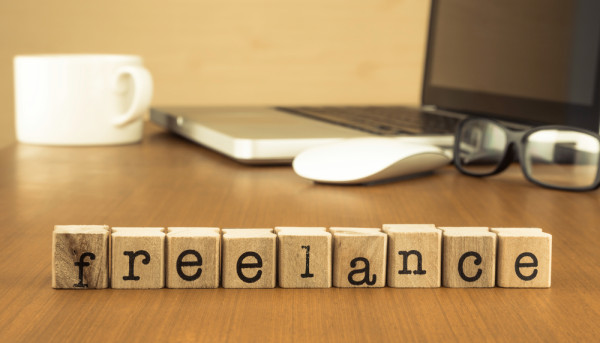How to Start Saving Money Today

How to Start Saving Money Today
If you want to save money, you must start by paying off any existing debts. Interest keeps adding up over time and can wipe out any savings you've made. It's also important to use 50% of your income on necessities and 30% on wants. Then, you can start saving. Depending on your financial situation, there are many options for saving money.
Budgeting
In these difficult economic times, it can be helpful to think about how you spend your money. You can make some cuts in your essential expenses and free up some money for savings. For instance, you can opt for a smaller car or bring your lunch to work instead of eating out every day. You can also consider getting a high-deductible health plan in order to reduce your medical expenses. This is beneficial because it can also give you a tax break.
Setting goals is also a good way to save money. If you are saving money for a long-term goal, you should estimate the amount of money that you will need to achieve this goal. On the other hand, if you are saving for something fun, you should set a short-term goal for yourself. The goal should be beyond your current monthly budget. Reaching the smaller goals will give you a psychological boost and reinforce the saving habit.
Another way to save money is to reduce your utility bills. Depending on how many people live in your household, utility bills can add up quickly. By cutting back on these, you can save a significant amount of money each month. You may not think that a cup of coffee every once in a while will make a difference when it comes to saving money. But those little things add up!
Another easy way to save money is to use coupons and discounts to your advantage. You can find these at grocery stores and companies' websites. You can also use coupons to shop at your favorite restaurants. Remember to check out these coupons before you make any purchases. Another way to save money is to visit the library instead of buying new items. Most libraries have free events and movies for kids.
When you plan on saving money, make sure that you put aside a small portion of your paycheck. As a general rule, you should save 10 to 15 percent of your paycheck. This will allow you to set a realistic goal and monitor your progress. By doing this, you will become more financially independent and prevent yourself from falling into debt.
Cutting back on spending
If you are struggling with your finances, one way to start saving money today is to cut your expenses. You need to be realistic and know exactly what you need and what you can do without. While food and housing are obviously essential, you can eliminate some of your non-essential expenses. For instance, you can drop subscriptions to merchandise catalogs, email newsletters, and so on. Just make sure that you don't become too austere, or you might find it hard to make ends meet.
Many consumers have been scrambling to cover their expenses due to rising costs. This has resulted in many of them reaching for their savings and credit cards. If you are in the same situation, you may want to start saving money today by cutting back on your expenses and ditching your non-essential bills. Inflation has increased the cost of living in the United States and is pushing many households to take out additional debt to cover their expenses. By reducing your spending and reducing your monthly payments, you can avoid a higher burden and start accumulating savings for the future.
Start by creating a monthly budget. Use a personal finance app like Budget Watch to keep track of your spending, and set goals for each month. This will help you track your actual spending and identify where you can cut back. Once you've figured out where your money is going, make sure you set aside money for emergencies.
If you have a cell phone bill that is competing with your grocery budget, try to reduce the amount you spend on your service by eliminating the extras. Also, consider switching cell phone providers. This may require some research and persistence, but it can pay off in the end. Cutting back on spending can also help you feel more content, and you'll learn to be grateful for what you have.
Setting goals and making a budget are the first steps to establishing a financial plan that will last for years to come. Winnie Sun, managing director of Sun Group Wealth Partners in Irvine, Calif., says that the process of creating a budget doesn't have to be painful. It's about prioritizing yourself first, and you deserve better than to work hard for nothing.
Using cash
Inflation is killing savings. With the cost of living increasing at a rate of nine percent a month, the ability to save cash is becoming increasingly difficult. Most banks are increasing their deposit rates only slightly, so it is crucial to have cash on hand. While interest rates on savings accounts are currently low, forecasters expect them to rise in the next few months.
The first step to managing your money is to start setting aside money for emergencies. Unplanned expenses can hit at any time, and having some extra cash on hand will help you recover faster from unplanned expenses and reach larger savings goals. You may also get a tax refund, which can be your largest check of the year.
Another way to save money is to audit your possessions. If you have a lot of stuff that you no longer use, consider selling it online. This will not only help you save money, but it will also declutter your home. Plus, you'll be earning a little extra money.
Another way to save money is to make a detailed budget. It is crucial to write down every penny you spend and identify areas where you can cut back. You should have already cut off some non-essential spending. If you haven't looked at your budget in a while, you may find some areas where you can trim back.
Another method of saving money is by using credit cards that offer cash back. This will allow you to build a savings account that will provide you with a steady stream of free money. A great example of this is the Chase Freedom Unlimited credit card, which offers unlimited 1.5 percent cash back. In addition, many reward cards come with signup bonuses.
Setting specific goals
It's important to set financial goals, whether you want to buy a new car or go on a vacation. These goals are targets for you to achieve over time. The types of financial goals you choose will depend on your stage of life and the financial priorities you have. For example, if you want to start saving for a family vacation, you may set a financial goal of buying a special piece of clothing.
Another way to start saving money is by making a budget. Setting up a budget will help you track all your income and expenses. You'll know what you can afford to buy and how much money you need to save. If you spend a lot on dining out, you might be able to cut back and bring your lunch to work more often. Additionally, you can cut out subscriptions to streaming services and gym memberships that you rarely use.
While there are many benefits of setting up a savings plan, you must be committed to the process. You can't put it off forever and you have to work hard at it every day to save. You can use calculators to determine how long it will take you to reach your goal. Developing a plan is not a quick task.
Setting specific goals for yourself is crucial for achieving your financial goals. The first step is to identify the goal you'd like to save money for. Make it specific to your life, and set a realistic time frame for achieving it. It is possible to set incremental goals, such as saving $200 every month. By doing this, you'll be able to measure your progress and keep yourself motivated.
Setting specific goals will help you create a realistic budget. Remember to keep your goals short-term and medium-term. Setting long-term financial goals can lead to unrealistic expectations. A long-term goal might require years of saving, while a short-term goal may be a couple of months away. Setting short-term goals will keep you motivated while preparing for a long-term goal.











